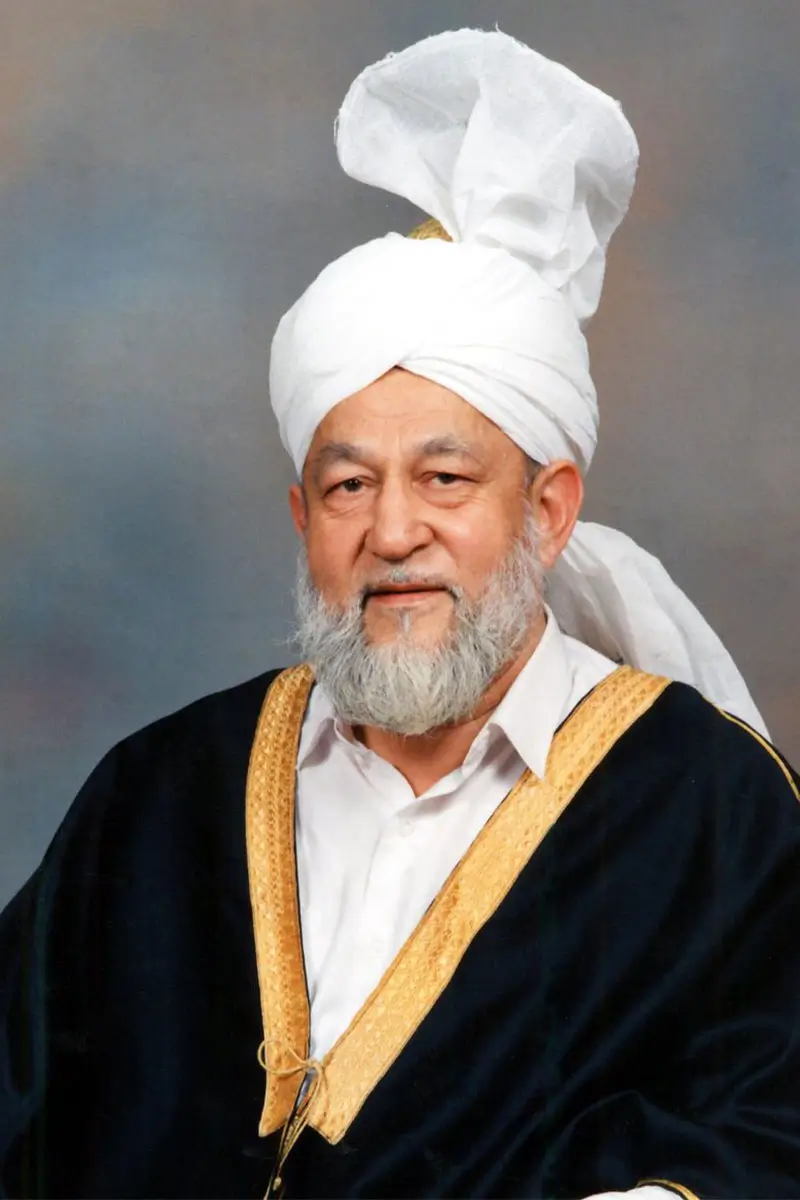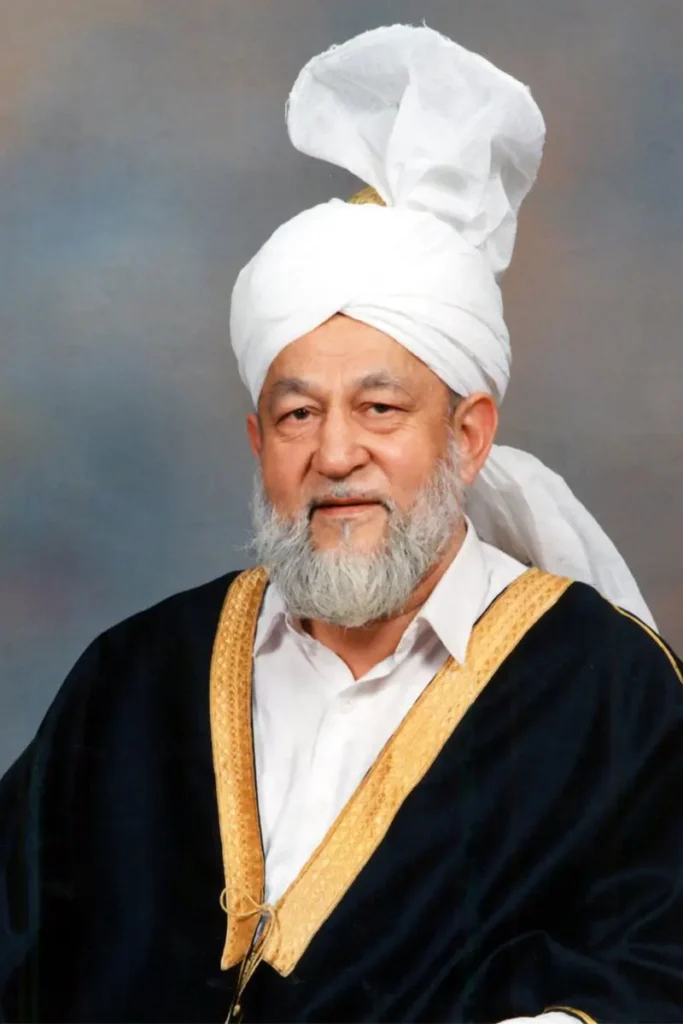Questioner: Hazur, A few days ago, we had Eid prayer, at which there was prayer followed by the sermon.
Huzoor (rh): That’s right.
Questioner: Which is opposite to Jumu’ah prayer, where the sermon comes before. What is the significance, if any, of that?
Huzoor (rh): You see, in the beginning, Jumu’ah also was held like this. Jumu’ah prayer was said in the beginning, and the sermon followed. But something happened, which was most unwelcome, to say the least. Some Sahaba thought that prayer being over, the main feature of the Jumu’ah has come to an end. So, if you go out and take leave from the sermon, still you would be considered as having attended the Jumu’ah. So, it was reported, I mean, this is what I’m telling you from various reports contained in Hadith and history, that a caravan with trade commodities, etc., was reported to have arrived in Medina. When Sahaba were performing Jumu’ah, the main prayer was over, but the sermon was going on. Those who thought that the sermon was not an essential part of Jumu’ah prayer, they started leaving. And this was not liked by God at all. He condemned it strongly in square terms. And from then on, it is reported by various scholars that the practice of Jumu’ah prayer, having been said before the sermon, was altered, and it was pushed back to the end part. But the Eid, because no such thing ever happened, so there was no need. So, in gatherings, this is very important, it has a message, in fact. The point is that if you wait too long for an address for the prayer, it is possible that you stand in need of refreshing your wudu, or some other things of that sort. So, it is better to have done with it. And that is the standing reason, in my opinion, not that report, which creates the difference between Jumu’ah and Eid. In Jumu’ah, you are sitting in a mosque, and out of the reverence to the mosque and the holiness of the place, it is impossible for those who sit to break their wudu in any form or anything, become too relaxed about it. On Eid days, people come from a much larger area, and their needs are quite genuine. And if they sit too long, because it is not a mosque, they can feel free to do whatever they please, thinking that then they would return to do the wudu. And for such a large gathering, the arrangements were not there anyway. So, forgetting about all the traditions which are reported, which are not definitely proved to be right, even from outside the domain of that, we can understand a wisdom behind this. Jumu’ah should be treated differently, and Eid should be treated differently.








